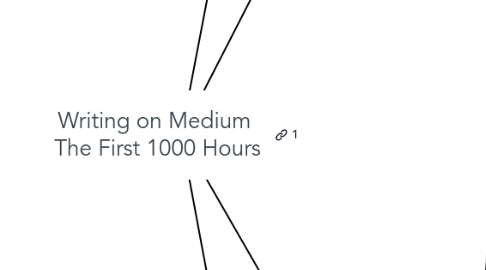
1. Expectations
1.1. Drastically increase your vocabulary, including synonyms and antonyms
1.2. Drastically improve your syntax
1.3. Drastically improve your conjugation skills
1.4. Know every aspect of the editor, inclusing all shortcuts
1.5. Become a pro at using all the social features
1.6. Become a very good storyteller
1.7. Craft solid subtiles that complement your headlines well
1.8. Self-edit your pieces better and faster
1.9. Use creative and interesting images for your articles
1.10. Research good sources that back up your claims
1.11. Type much faster
2. Prepare
2.1. The preparation will come in the form of continuous research and improvement in various sub-skills.
2.2. Every day, you should strive to learn new words
2.3. For words you use frequently, you should find different synonyms you could use going forward.
2.4. Start taking your stories more seriously and find unique and creative topics to write about.
2.5. Brainstorm multiple topic ideas and headlines every day.
2.6. For each topic idea you find, you should also start researching it and storing good information you find
2.6.1. This is so that when comes time to write the article, you don't break your flow.
2.7. Get better at storytelling.
2.7.1. Most successful writing on Medium features a good story.
2.7.2. Spend a decent amount of time learning everything you can about storytelling.
2.8. Become a master of crafting headlines and subtitles.
2.8.1. It's the ultimate cheat to get more views on your articles.
2.8.2. The more time you spend into researching what works and what doesn't, the more successful your writing will be.
3. Practice
3.1. This should be the bulk of what you're doing at this stage
3.2. Most of what will make you a better writer on Medium at this point boils down to the sub-skills, like vocabulary, storytelling, crafting headlines, and editing.
3.2.1. Once you master those, you'll become unstoppable.
3.3. Slow down on the content you produce at this point.
3.4. Still focus on quality AND quantity, but with more emphasis on quality.
3.5. Aim to write the best-possible articles you can on the topic you choose.
3.6. Aim for advice so good it will be relevant for years to come.
3.7. Do better research, spice up your articles with custom graphics, do interviews, etc.
3.8. Do everything you can to make your articles stand out.
3.9. You want to start being known for one or two specific niches.
3.9.1. You want to be seen as the expert on a select few topics.
3.9.2. This will help create a "personal brand" for you.
3.9.3. When people see your name, they'll have a better idea of what to expect.
3.10. Still, strongly consider spending about 10-15 percent of your time experimenting with new styles and new topics.
4. Ponder
4.1. Reflect on these three questions weekly, monthly, quarterly, and possibly yearly
4.1.1. What went right?
4.1.2. What went wrong?
4.1.3. How can I improve?
4.2. Spend at least 15 minutes every week thinking about that.
4.3. Take notes in a journal or a note-taking app of your choice.
4.4. In addition to those questions, at the end of each quarter, ask yourself:
4.4.1. What lessons did I learn?
4.4.2. What sub-skills do I need to spend more time improving?
4.4.3. What do I want to do going forward? Continue? Stop?
4.4.4. How can I use what I've learned in my life and day job?
4.4.5. What actions can I take to improve where I've failed?
4.4.6. When am I going to do those actions? (Schedule them)
4.4.7. Where else could I use these skills?
